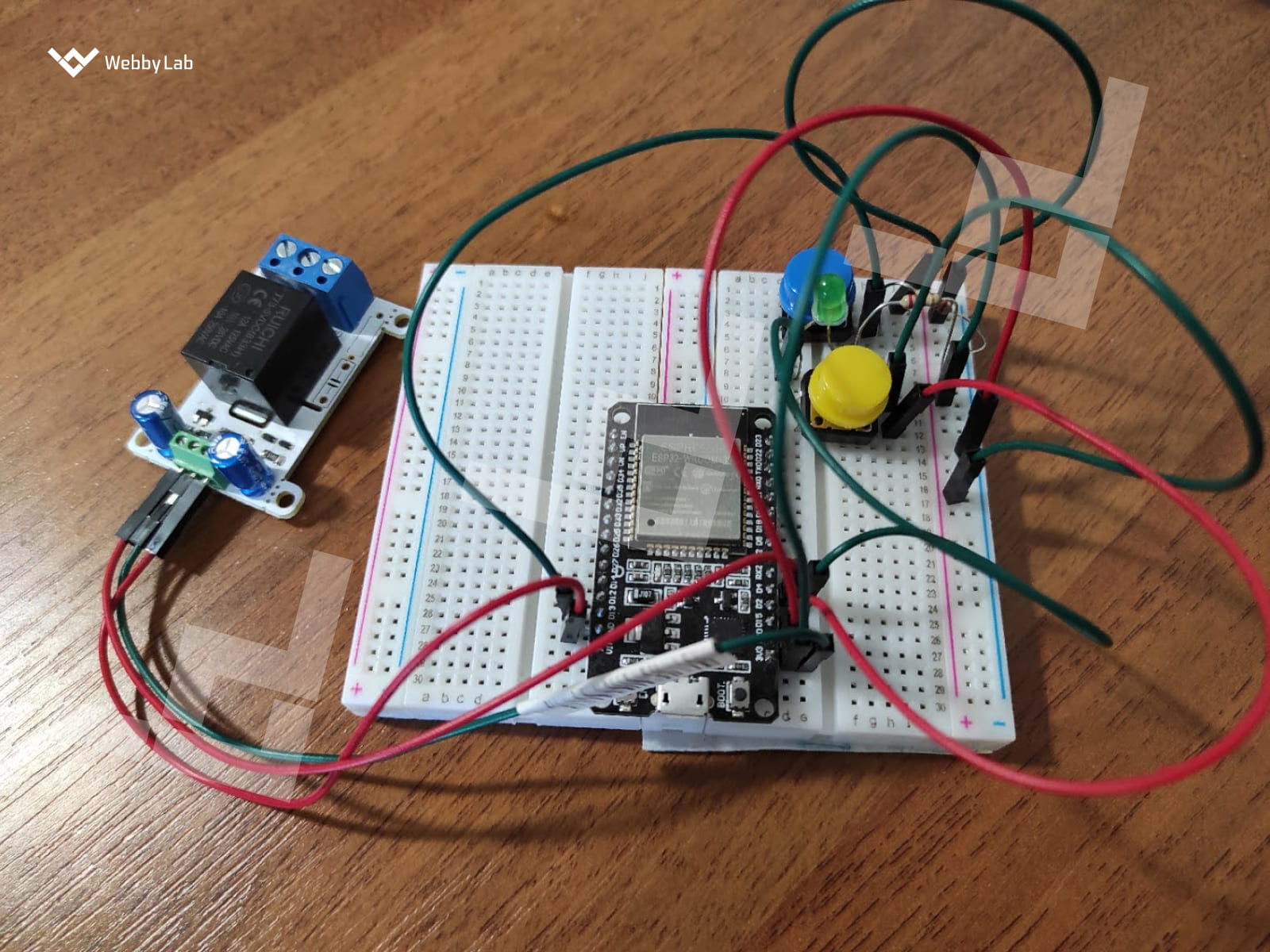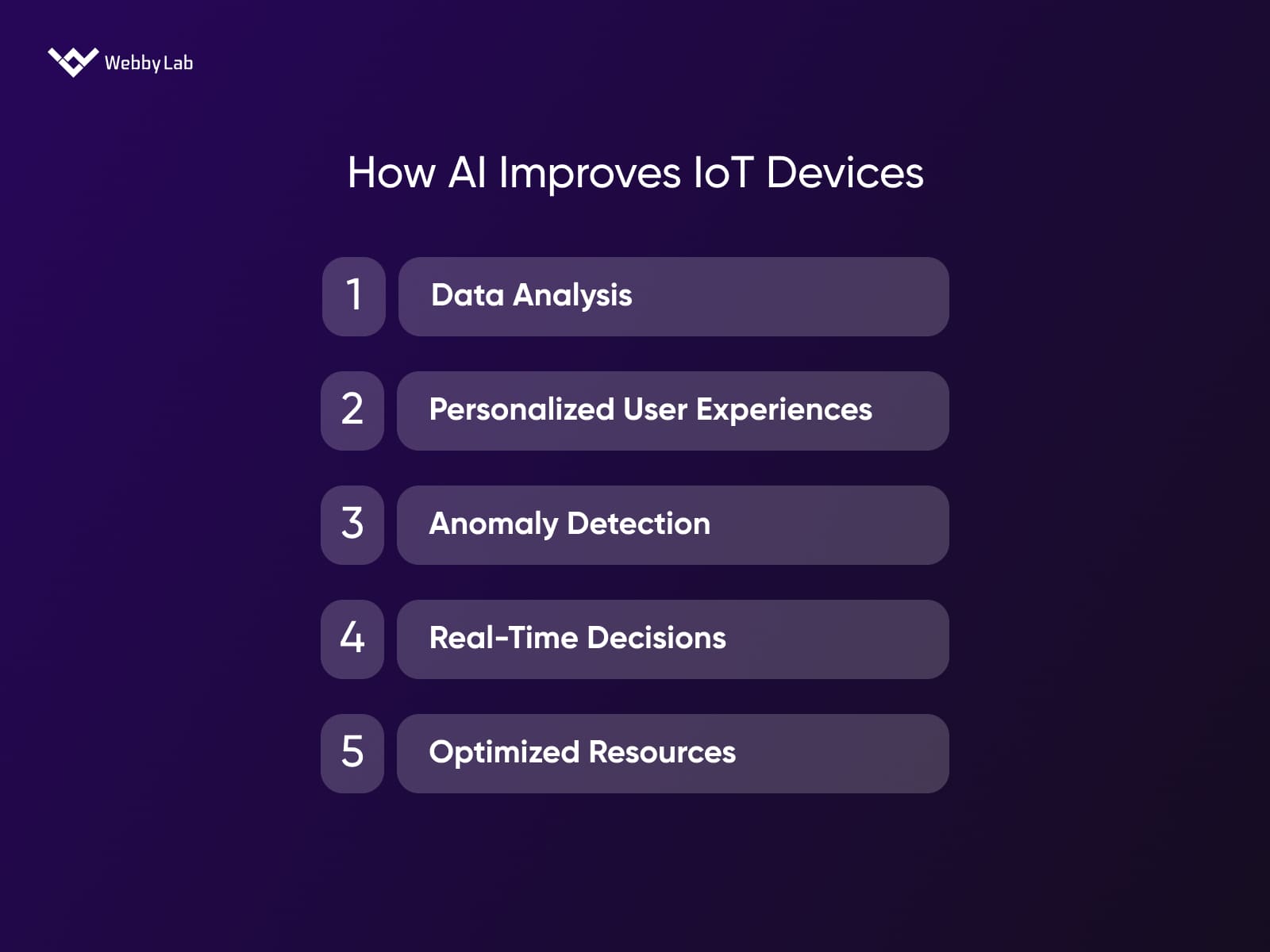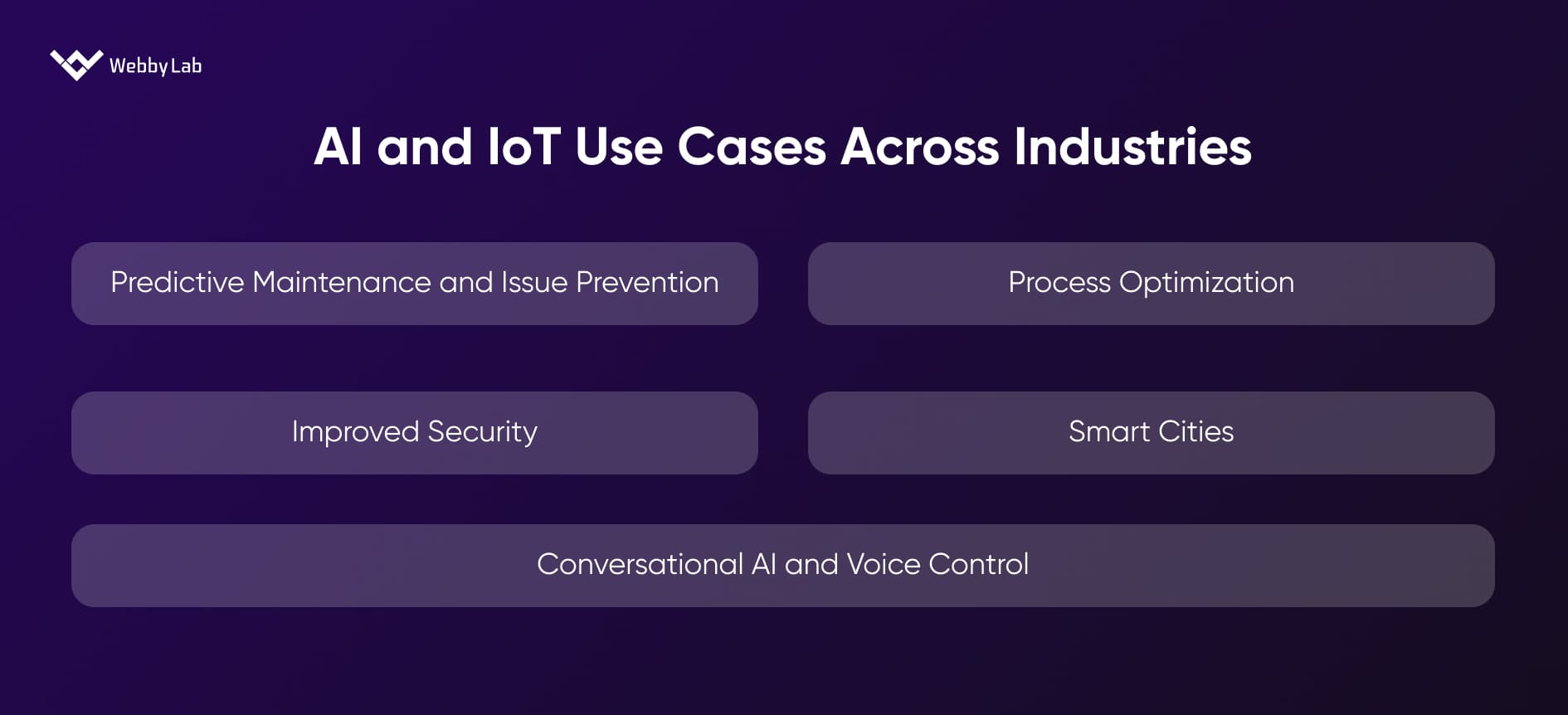AI in IoT: The Perfect Match for a Smarter World
Written by:

Kostiantyn Oliynyk
Head of IoT at Webbylab
With a robust academic background in Telecommunication Systems Engineering, I apply my knowledge to lead innovations in the IoT domain. Starting as the first team member in the newly formed IoT department at WebbyLab, I've spearheaded its growth, fostering the expansion into embedded and hardware development alongside our core software projects. My dedication lies in pushing the boundaries of IoT technology, fostering a culture of innovation and excellence that profoundly impacts our clients' operational success.
AI algorithms can analyze data from IoT devices and study user behavior to identify unusual patterns and suspicious activities. Besides just that, advanced features like AI-powered biometrics can be integrated into IoT devices for more secure login processes.
Combining IoT with AI allows you to analyze historical and real-time data to identify performance bottlenecks and think of possible improvements. It also lets you predict equipment failures and allocate resources better, ultimately leading to a more efficient IoT system.
The top challenges of using AI with IoT projects are:
- Data management. The large volumes of IoT data should be stored and processed properly.
- Cybersecurity. AI introduces new attack surfaces, so robust protection is a must.
- Interoperability. A lack of standardized protocols can create compatibility issues.
- Cost. Developing and maintaining AI models, along with the required infrastructure, can be expensive.
Machine learning is a part of AI, which lets IoT devices learn and improve over time. ML algorithms use historical data from these devices to train and, as a result, make predictions, identify patterns, and automate tasks.




 The IoT device scheme generated by ChatGPT
The IoT device scheme generated by ChatGPT



